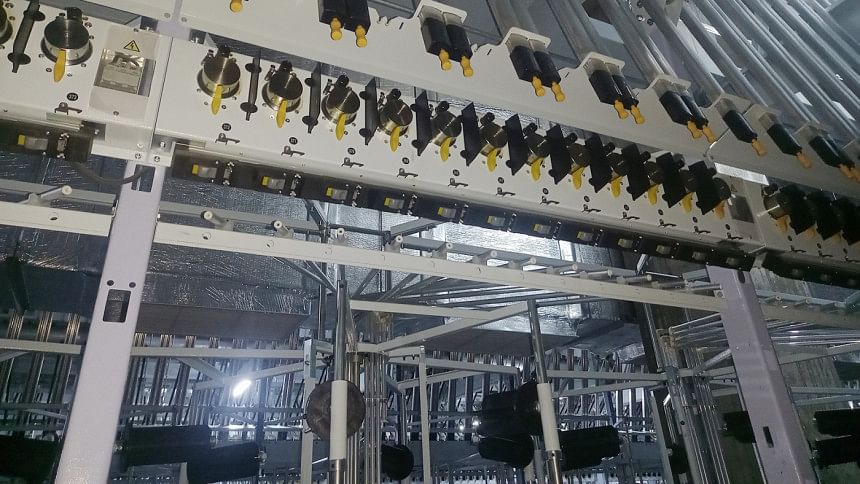Man-made fibre plant to begin operation next month

Modern Syntex Limited, a concern of TK Group, is likely to begin commercial operations of one of the largest man-made fibre plants in Bangladesh next month at the Bangabandhu Sheikh Mujib Shilpa Nagar in Chattogram.
"We will produce several textile-related products, such as polyester yarn, polyester staple fibre and polyethylene terephthalate (PET) chips," said Md Mustafizur Rahman, a director of TK Group.
At an investment of $141 million, Modern Syntex has set up the factory as import substitute, Rahman said. Of the total investment, around 30 percent is equity and the rest is being financed by banks.
He said they were targeting the start of operations on October 28, depending on gas connection.
At an investment of $141 million, Modern Syntex has set up the factory as import substitute. Of the investment, 30 percent is equity and the rest is being financed by banks
"Our factory has been ready since March of this year but we could not begin operating due to not having a gas connection," Rahman said.
"I personally negotiated a lot with Karnaphuli Gas Distribution Company Ltd (KGDCL)," he said, adding that they had to deposit six months' payment in advance instead of the regular three-month deposit.
Modern Syntex had to deposit Tk 56 crore to KGDCL, which counts as additional investment, he said.
According to Rahman, once Modern Syntex begins production, it will be able to meet 38 percent of the present annual demand for PET chips and other textiles products.
Modern Syntex has a production capacity of 460 tonnes per day. The present annual demand for such items in Bangladesh is 12,250 lakh tonnes.
He added that they would import raw materials from Saudi Arabia, Qatar, Indonesia, China and India, among other nations.
"To ensure the quality of our products, we used equipment from Germany, China and India. Germany-based Oerlikon Group has built the plant," he said.
According to him, the plant will require around 1,500 employees to operate.
The man-made fibre industry in Bangladesh had become a key sector in the country's textile and apparel industry and gained importance due to its contribution to the economy by facilitating exports and creating jobs, said Rahman.
The sector in Bangladesh would grow in the coming years, driven by increased demand for synthetic textiles worldwide. Rahman said they would meet the demand for apparel, home textiles, technical textiles, shoes and products in the automotive sector in Bangladesh as import substitutes.

 For all latest news, follow The Daily Star's Google News channel.
For all latest news, follow The Daily Star's Google News channel. 




Comments